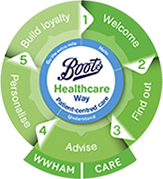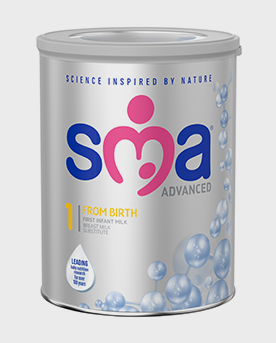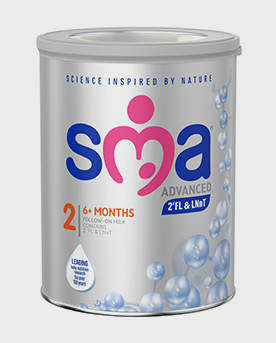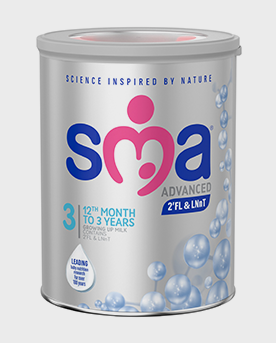
Preparing formula milk
Sales plan period: P10B

After completing this module you will:
-
Understand the importance of sterilising feeding equipment
-
Be confident advising on preparing formula milk.
The Department of Health recommends exclusive breastfeeding for the first six months of an infant's life as this is the best form of nutrition. However, if the mother is unable to breastfeed or decides not to, it is important that formula milk is correctly prepared.
First-time parents may be unsure how to prepare formula for their baby and may turn to the pharmacy for professional advice on how to best make up a bottle. It's important to advise them that bottles, teats and other feeding equipment need to be washed and sterilised before each feed. This reduces the baby's risk of contracting an infection, as their immune systems are immature. Feeding equipment should be sterilised until the baby is at least 12 months old.1

IMPORTANT: Only healthcare professionals can advise on infant feeding and formula milks. If a customer hasn't used formula before and is thinking of starting, check that they have had a conversation with a healthcare professional, such as a pharmacist, technician, midwife or health visitor.
How to prepare formula milk2
This is a general guide on how to prepare formula milk. Remind customers to check formula milk packaging for specific instructions and to use the scoop that comes with the formula. This ensures that the correct amount is made for the baby's age. Feeds should be made as and when needed to reduce the risk of infection. This includes discarding any remaining formula milk that has not been drunk. Formula milk should not be batch prepared.
You should remind customers to wash their hands and clean and disinfect any surfaces that will be used before preparing formula milk.
The kettle should be filled with at least one litre of fresh tap water. Water that has been previously boiled should not be used. Tap water should be used because the salt content in bottled water can be too high for babies. However, this may not always be possible, e.g. when travelling, as tap water is not recommended for drinking in some countries. In these instances, customers should boil bottled water to ensure it is sterile and check bottles for salt content. The bottled water should contain less than 200mg/L sodium (Na) and less than 250mg/L sulphate (SO4).
Once the water is boiled, it should be left to cool for up to 30 minutes. The temperature should be around 70°C.
Following the specific formula instructions, the correct volume of water should be poured into the bottle (before the powdered formula). Use the scoop to measure and add the powdered formula.
The teat and cap should be secured to the bottle, and the bottle shaken until the powder has dissolved.
The formula milk should be cooled so it is not too hot for the baby to drink. You can advise parents to cool the formula by running cool water over the outside of the bottle. The temperature of the formula can be checked on the inside of the parent's wrists. Formula should be body temperature.
Information for healthcare professional use only
SMA® ADVANCED
NOW AVAILABLE ON BOOTS.COM
Item codes and prices: See Boots.com
SMA® ADVANCED is the first baby milk range in the UK & Ireland to contain human milk oligosaccharides (HMOs*) 2'FL and LNnT.1-11 The SMA® ADVANCED range is specially designed to help support baby's developing immune system.12-14
SMA® ADVANCED First Infant Milk
- Contains HMOs 2'FL and LNnT
- Contains zinc and vitamins A, C & D to help support the normal function of baby's immune system12
- Easy to digest - Partially hydrolysed, 100% whey protein for softer stools.15,16

SMA® ADVANCED Follow-on Milk
- Contains HMOs 2'FL and LNnT
- Contains zinc and vitamins A, C & D to help support the normal function of baby's immune system12
- Fortified with iron (which UK dietary surveys show can be lacking in infant diets)17 to help support normal cognitive development in baby's brain.18

SMA® ADVANCED Growing Up Milk
- Contains zinc and vitamins A, C & D to help support the normal function of the immune system12
- Contains HMOs 2'FL and LNnT
- Vitamin D and calcium support the normal growth and development of bones.19

